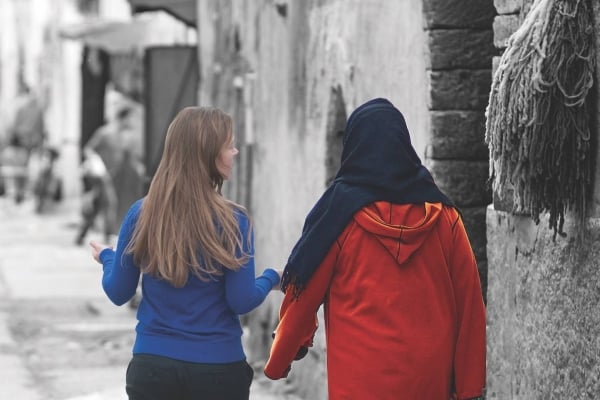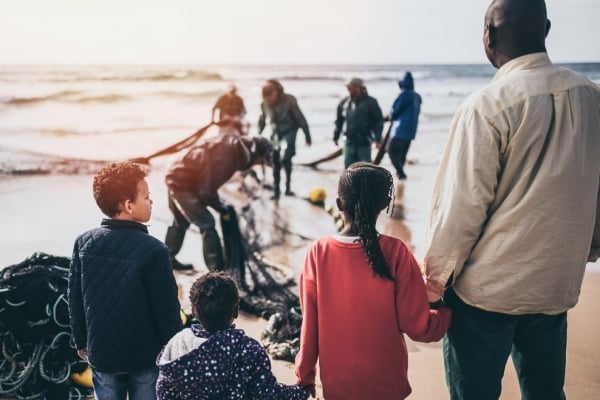
A Day in the Life of a Refugee Worker
Christar workers serving among refugees are faced with the daunting task of meeting the multifaceted physical, emotional and spiritual needs of displaced people while seeking to point them to the everlasting home and hope found in Christ. A Christar worker ministering in a refugee camp in Eastern Europe gives us a glimpse into his day.
5:55 a.m.
I wake up on a mat in the church I’ve slept in this time around. Last week when I was up here, I stayed in a local youth hostel. There are better beds there, but I’m thankful for the quieter morning and uninterrupted sleep last night. The church is quite close to the camp, so I’ve got a little time to prepare myself for the day ahead.
When I first arrived in Eastern Europe, I did a ton of networking, trying to figure out the best way to reach Syrian refugees. Now, almost every week, I drive four hours north through the mountains and spend several days in this refugee camp. It’s hard to split my life between my work here and my family week after week. But I’m thankful for God’s answer to my prayers for an open door to serve. I asked, and He said “yes.”
7 a.m.
I arrive and show my badge to gain entry into the camp. These days, the camp is around 60 percent Afghani refugees and 40 percent Syrian refugees. It was originally set up for transient refugees, but now it’s become “home” for people who aren’t permitted to cross into Serbia. Police and rows of chairs separate the new refugees from the older, “permanent” group. The new refugees, who will be on their way shortly aren’t given anything to eat or drink before they move on toward the border. This is simply one stop in a long and difficult journey. It’s far from an ideal situation.
7:27 a.m.
My first task is delivering bananas and oranges to Syrians in two large tents. Each tent houses about 150-200 people.
As I deliver physical fruit, I’m always hoping to see spiritual fruit. I hand out paper cards that point people to online resources in Arabic. I used to hand out SD cards loaded full of gospel media, but after 10,000 were distributed, we ran out!
8:39 a.m.
I carry thermoses of hot tea to the tents. As I visit with families, a mother stops me. Her child has a fever, and she asks me to translate to the Red Cross to be sure the physician understands the symptoms. As I finish translating her concerns, an elderly Kurdish man beckons to me. He asks me in Arabic if I can help him make a special appeal to the United Nations so he can continue his stomach cancer treatment. One by one, I ask questions and translate requests. Several hours pass.
12:18 p.m.
I return to the tents several times with more fruit and continue to interact with people stuck in a cycle of waiting. Waiting for hope, waiting for home. Waiting to know what comes next. I ache for the families with newborns or very young children and for the old and frail. As I head into one tent, I meet a family with a month-old baby girl born just days before her parents traveled. I can’t imagine this young couple clinging to their infant on the open sea between Turkey and Greece. She looks exactly like my daughter. I can’t stop holding her.
I’ve met people from all sorts of backgrounds who have stepped onto the “refugee highway.” A storekeeper whose face was burned by a bomb. Farmers, truck drivers, college students, men who work in the stock exchange. I even met a young man fleeing from a blood feud after he murdered one of his relatives. Everyone here shows me photos of home on their mobile phones. Everyone has a story to tell.
2:35 p.m.
I continue moving from tent to tent. I listen. I translate to Arabic. I hand out bananas and oranges. As I’m about to leave one tent, a father turns to me with angry shouts as he vents his frustration at not being able to travel on to Eastern Europe—he knows I’m one of the few foreigners who will understand his complaint, because I speak his language. There, with every eye in the crowd on me, I explain again that I can’t do anything to expedite his travel. I am powerless.
3:15 p.m.
With a box of oranges in my hands, I turn to move on to the next tent. A young boy runs up and bites me on the leg because he wants more fruit. As he chomps down on my thigh, and I drop the box in surprise and pain. I wish I could let each person take as much as they want, but I need to distribute it fairly. Moments like this whisper to me that I’ve had my fill of all this. It is hard, hard work. I am tired. Everyone around me is tired too.
4:34 p.m.
I see a food truck entering the camp and wave to the driver. I plead with the driver to take the food directly to those who are underfed. Some Syrians are literally starving because others who have been in the camp longer know exactly when the food comes and will swarm the truck as soon as it arrives. The food is often finished before anyone else gets their share. As the truck revs back to life, I say a prayer of thanksgiving, grateful that the hungriest will receive their share of food tonight.
5:02 p.m.
I work my way through the tents again, delivering that same food. I’m worn and my feet ache from the cold. I think back to last Tuesday when a rainstorm blew through the camp. My clothing was soaked. The tents began to flood. There was no power, and the gas cylinders were empty. On top of darkness and almost-freezing temperatures, most people’s bedding got sopping wet. The darkness made me nervous; I’ve known workers who have been attacked when things got out of hand in the camp.
8:37 p.m.
My body protests as I walk back to the church. It takes nearly an hour for blood to start to flow to my feet again after a night of walking through freezing puddles. I think back to last week, when I got sick during the night. I felt like throwing up; I had a fever and a headache. My adrenaline wouldn’t slow down. My senses were over-stimulated and I couldn’t sleep.
9:54 p.m.
I lie in the quiet church and marvel at how the refugees endure this, dealing with these awful conditions day in and day out. I feel physically and emotionally depleted, but I get to go home to my wife and daughter tomorrow. These men and women, along with their children, may never return to their families. Some have no families to return to.
I can get so easily discouraged in these days at the camp. I can feel like these refugees are forgotten. But before I sleep, I pause. I pray, and then I remember, “Joseph was warned by an angel in a dream to flee to Egypt with his family.” You see, the Lord of the universe once lived as a refugee.
I know without a doubt that every single refugee I meet will only find true and lasting hope in Him. And I am grateful that my Lord, who understands the life of these refugees, opened this door for me to serve Him. With each cup of tea or piece of fruit, or familiar word spoken in their native tongue, I am joining Him in their stories. And He is working.
Participate by Praying:
- Ask God to give wisdom and perseverance to workers seeking to meet refugees’ needs and introduce them to the gospel.
- Pray that refugees who experience Christ’s love through the ministry of Christar workers and local believers will be drawn to Him.

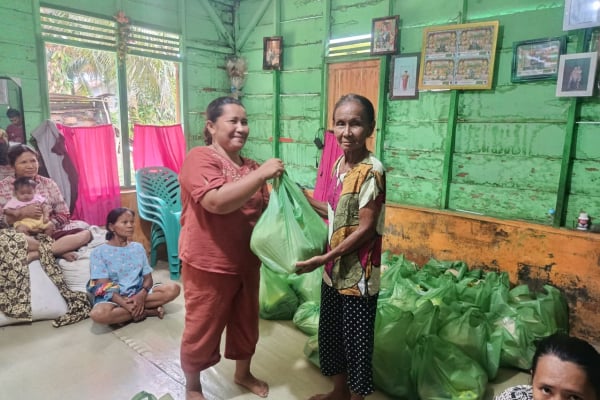
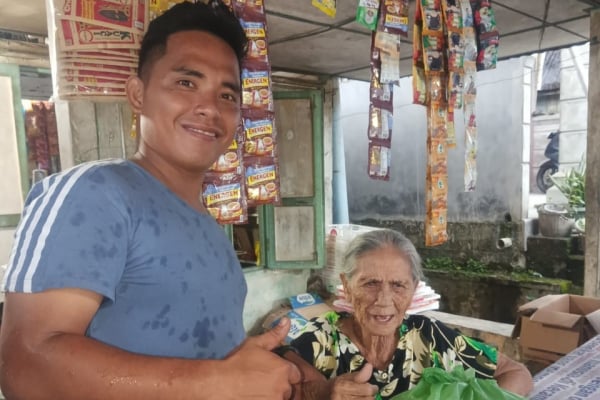
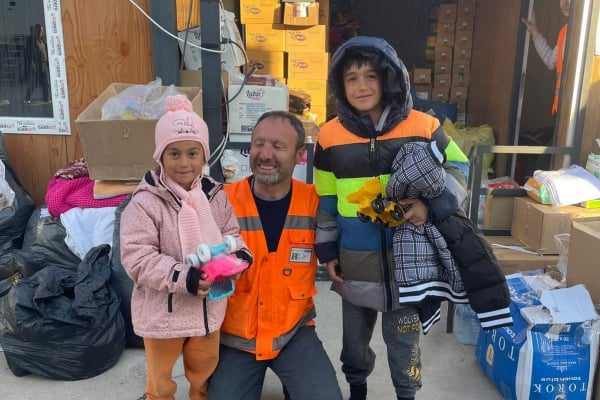
_1624034103_600x400.jpg)


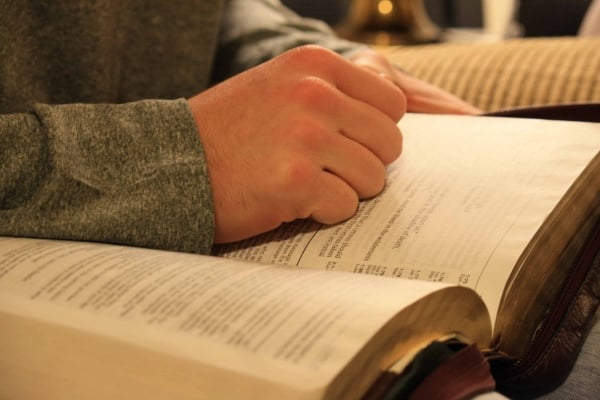

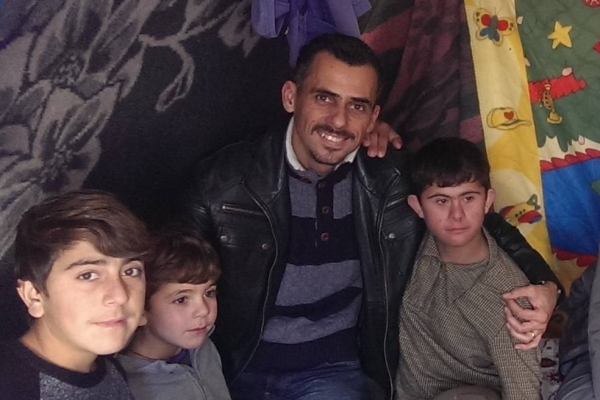
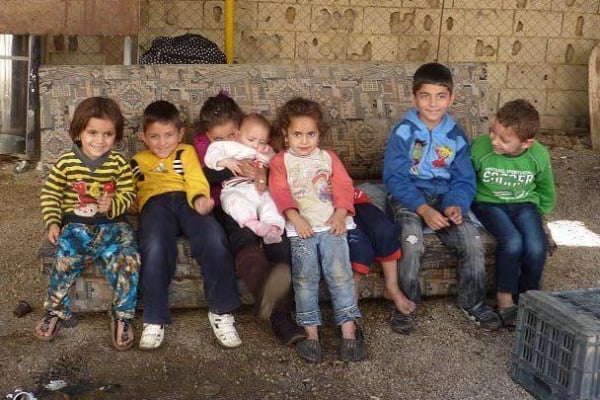
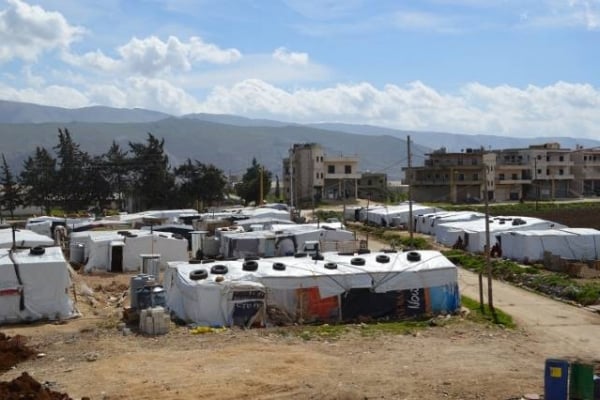
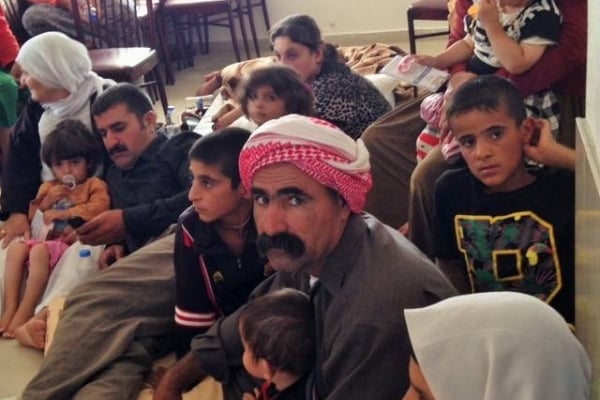

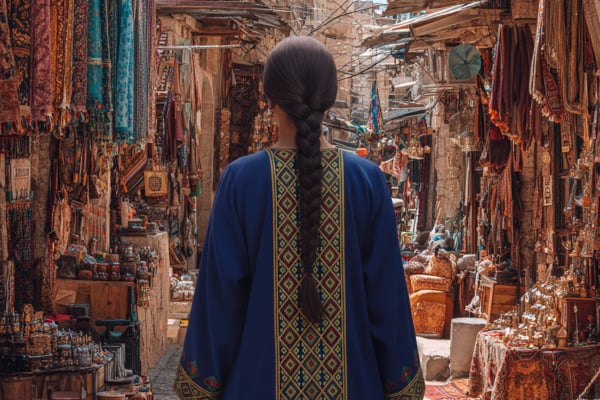
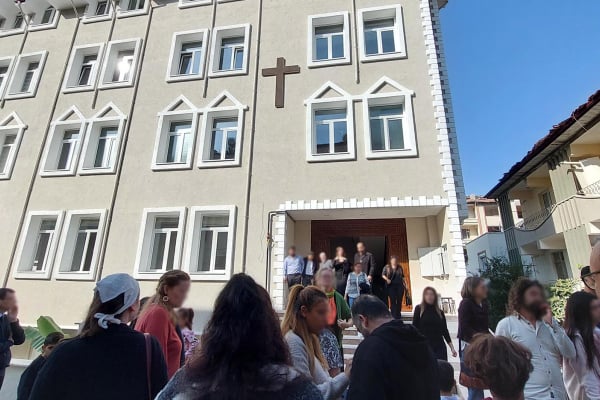
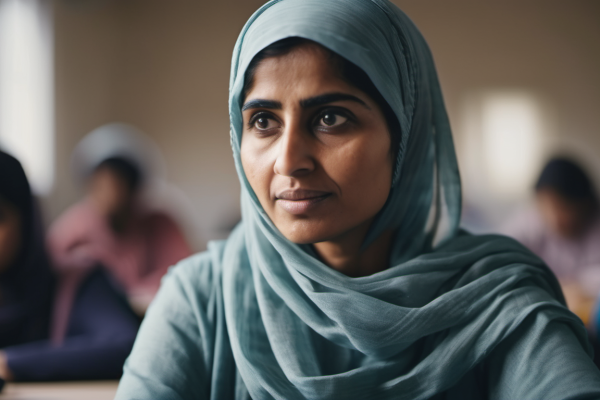
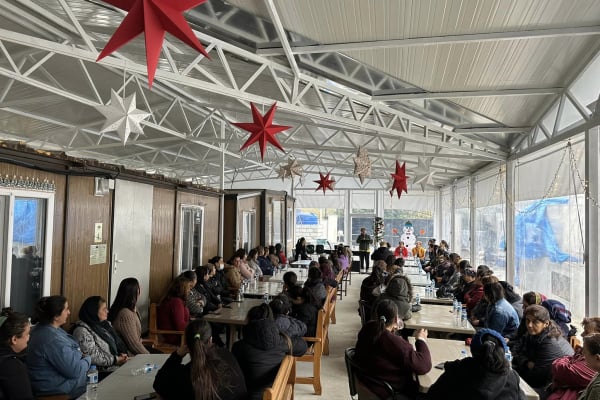
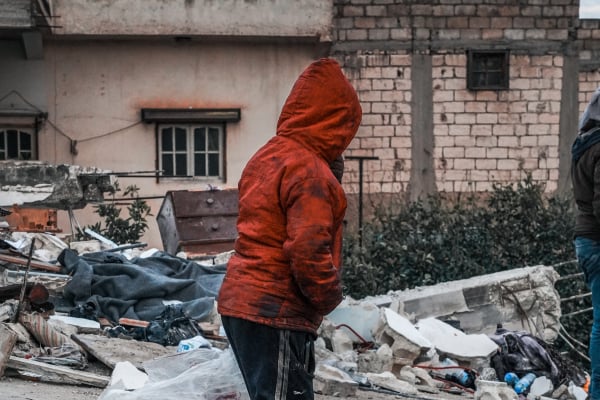
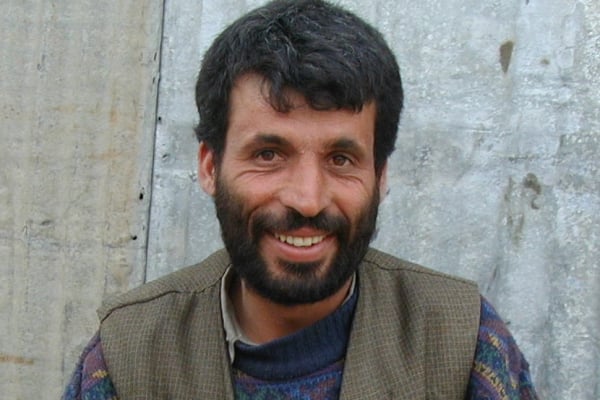
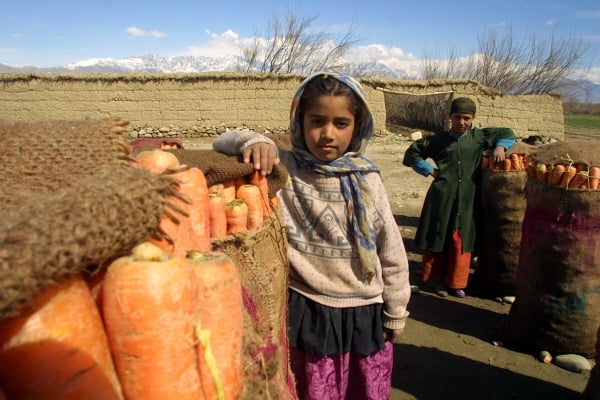
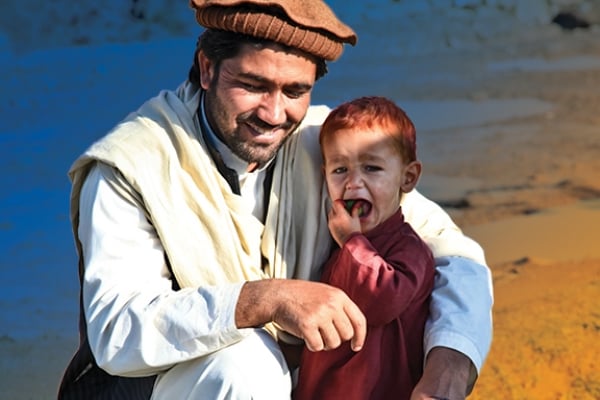
_1654032461_600x400.jpg)
